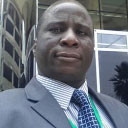9 December 2016, by Rev. David Ugolor, Africa Network for Environment and Economic Justice (ANEEJ).
In 2016 the government of Nigeria set up a Presidential Committee on Asset Recovery, which in a departure from previous initiatives includes civil society groups as members. This alongside efforts to strengthen the asset recovery regime with new legislation, including a bill to establish a National Financial Intelligence Unit and a bill on the proceeds of crime, is a positive change demonstrating readiness to tackle asset recovery in an open and participatory manner.
This progress follows a disappointing past record in this area, however. In 2015, the Nigerian government concluded plans to repatriate US$227 million (N36.32 billion) from the government of the Principality of Liechtenstein, as part of the funds recovered from Nigeria’s late head of state, General Sani Abacha. In the process, the government entered into secret agreements with the Abacha family requiring the family to return part of the looted money in exchange for perpetual immunity against prosecution. Civil society groups were entirely excluded from the process.
Civil society involvement for transparency and accountability
The exclusion of civil society does not reflect the spirit envisaged by the UN Convention against Corruption (UNCAC) including articles 5 and 13, which are under review in the second cycle of the UNCAC review process. Article 5 states that:
… each State Party shall….coordinate anti-corruption policies that promote the participation of civil society and reflect the principles of the rule of law, proper management of public affairs and public property, integrity, transparency and accountability.
Furthermore, in 2015 Resolution 6/3 of the Conference of States Parties used the following language, “Noting the important role that civil society could play in asset recovery and return”, indicating significant support for civil society participation in this area.
This approach is supported by the StAR Initiative, which concluded in a 2014 report that the recovery of stolen assets requires coordinated action by all stakeholders in both requested and requesting jurisdictions, including those responsible for setting policies, law enforcement and justice officials, banks, private companies and their intermediaries (e.g., lawyers), development cooperation actors, civil society and the media.
It is also in line with the outcome of the Fourth High Level Forum on Aid Effectiveness, which culminated in the Busan Partnership for Effective Development Co-operation. As a result Nigeria is now committed along with others to fighting corruption and undertaking efforts to identify, trace, freeze, and return the proceeds of corruption.
The importance of civil society involvement in asset recovery is easy to demonstrate. The Nigerian Network on Stolen Assets, a civil society group led by the Africa Network for Environment and Economic Justice (ANEEJ), has followed the Nigerian government’s efforts to recover hundreds of millions of dollars stashed in bank accounts across Europe and America by past corrupt leaders. When in 2005 approximately US$458 million of Nigeria’s stolen assets were recovered through the cooperation of the Swiss government and the support of the Swiss NGO Coalition and Heinrich Böll Foundation, the Network’s CSO monitoring report, published in 2006 on the use of the funds, showed that part of it was again diverted and lost to the public purse. But the government insisted the money was spent as part of the budget expenditure.
Political will to tackle corruption
The government’s lack of political will has been demonstrated in the past by its reluctance to involve civil society in asset recovery and its failure to apply credible sanctions on the Abacha family. As a result, Nigeria has had little success in concluding asset recovery processes for over a decade since 2005.
However, with proposed legislative changes and the new Presidential Committee on Asset Recovery there appears to be renewed enthusiasm for anti-corruption and asset recovery, and a move towards international cooperation: between July and August 2016, the Swiss and British governments both signed a Memorandum of Understanding with Nigeria to facilitate the recovery of stolen assets.
About the author
 Rev. David Ugolor is the Executive Director of the Africa Network for Environment and Economic Justice (ANEEJ).
Rev. David Ugolor is the Executive Director of the Africa Network for Environment and Economic Justice (ANEEJ).



